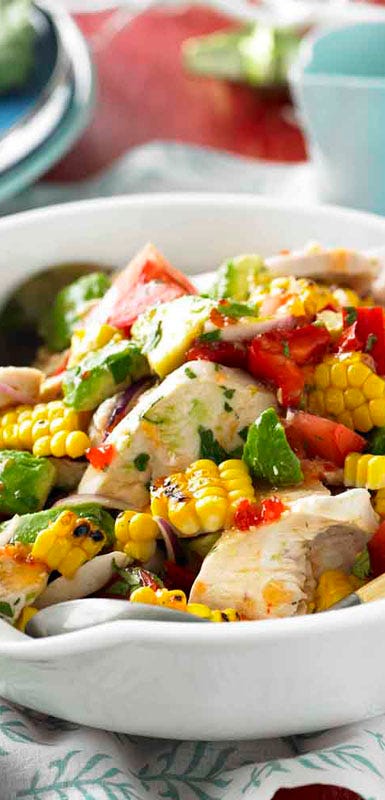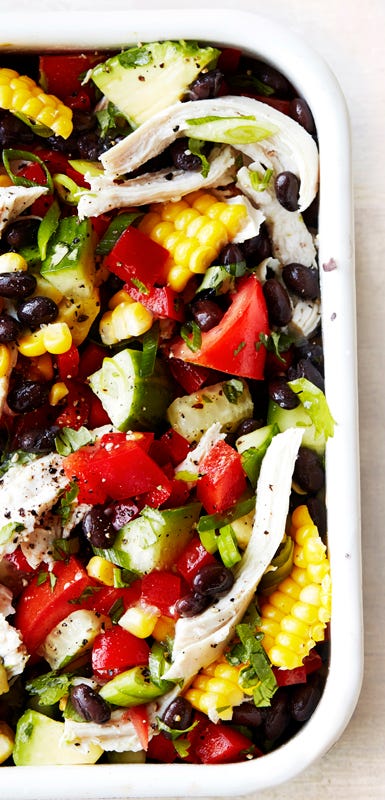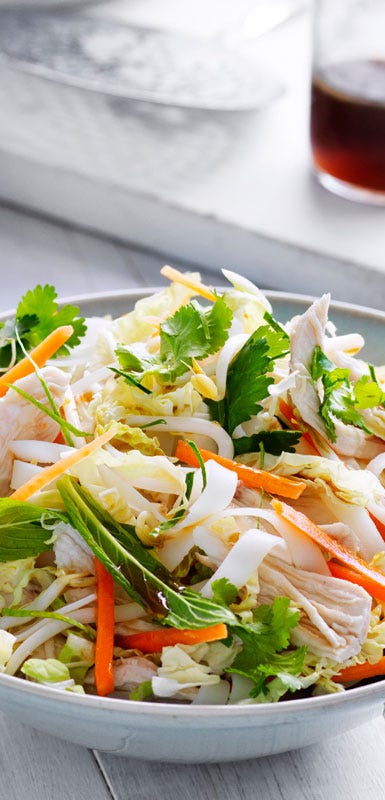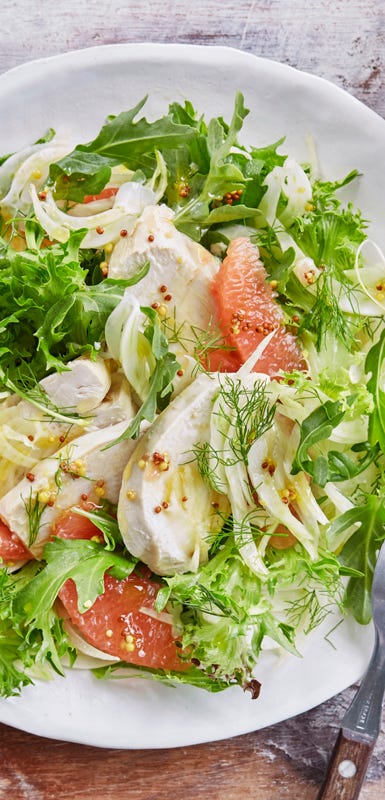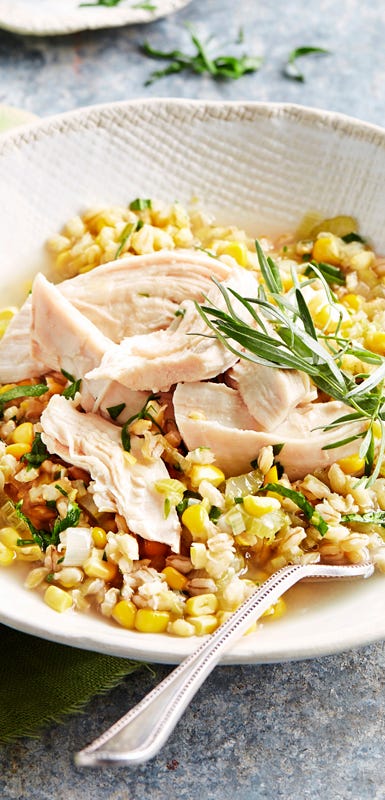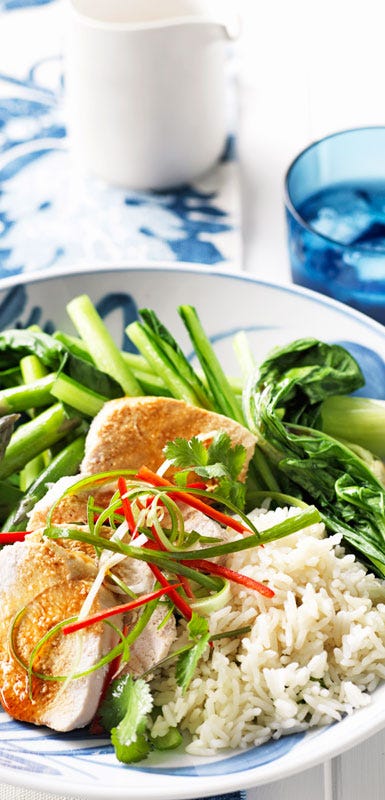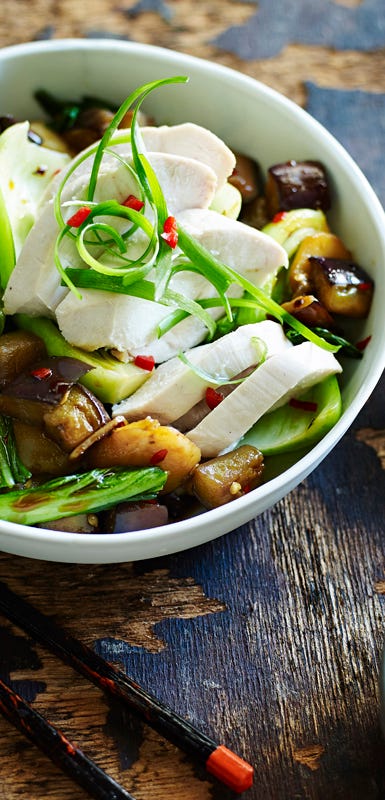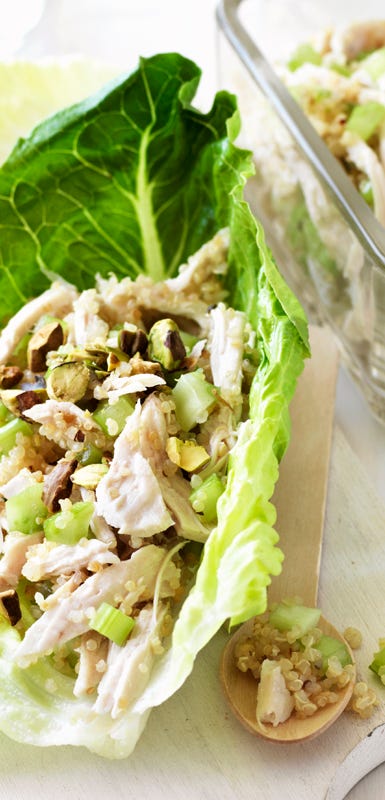How to poach chicken breast
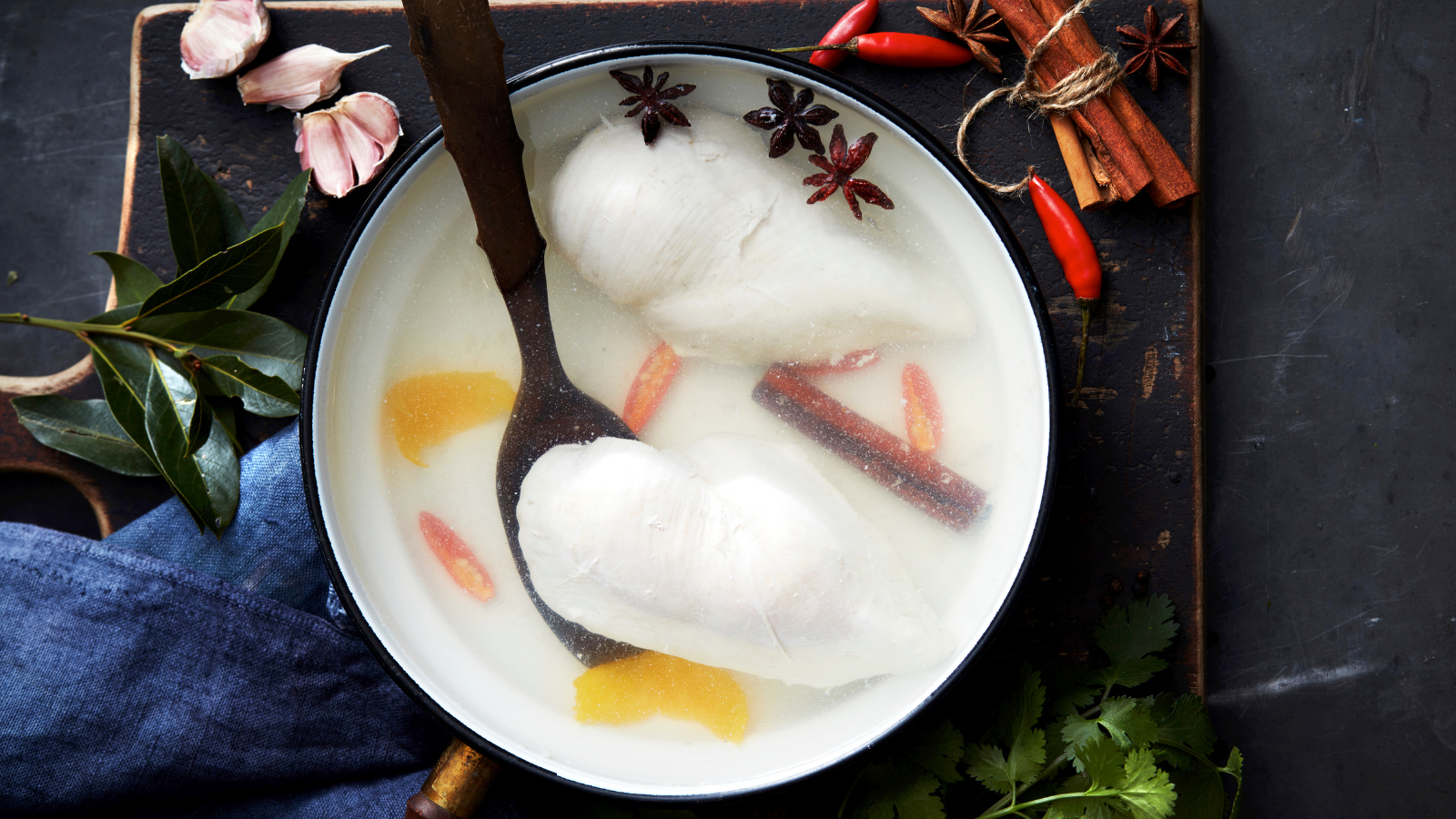

Steps to poaching chicken
Poaching chicken is quick, easy and keeps the meat moist and tender. Learn this simple cooking method with these step by step instructions. Poaching – sounds fancy. It isn't! Poaching chicken is quick, easy and keeps the meat moist and tender. Perfect for a quick salad, sandwich, pasta bake and so much more, poached chicken is a must for your fridge.
1. Place chicken breasts in a single layer in a heavy based saucepan or frying pan and add enough water to just cover. Add aromatics such as garlic, citrus rind, peppercorns, bay leaves or other herbs and spices.
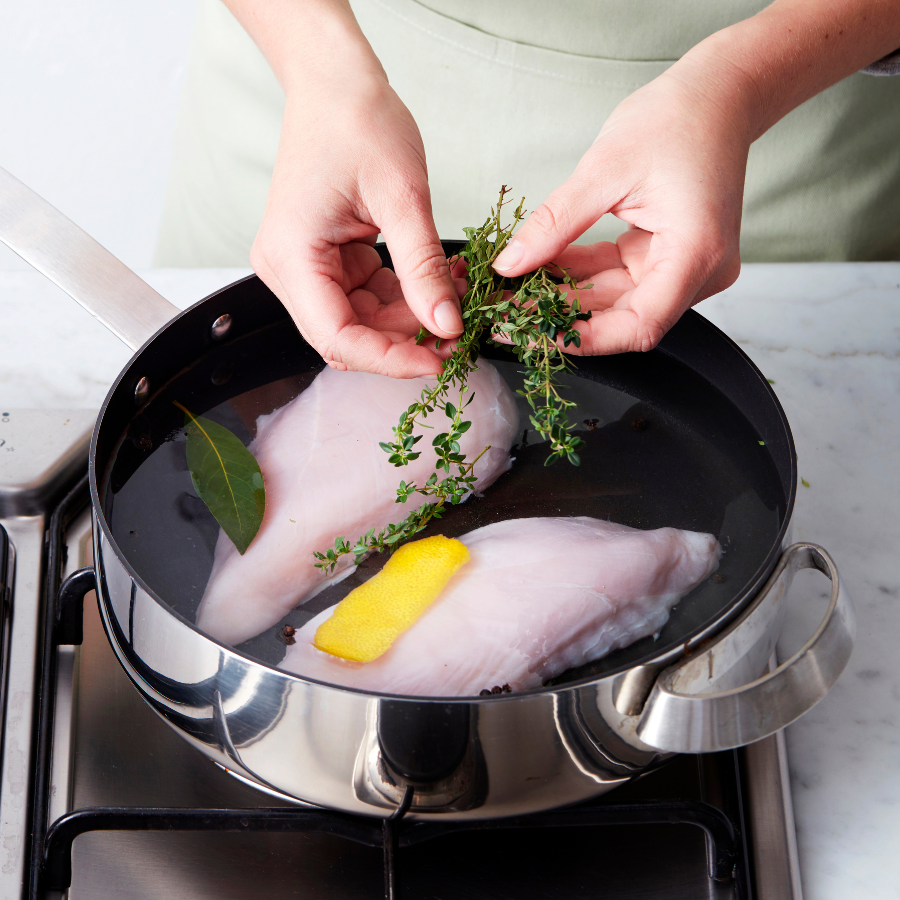
2. Bring to a gentle simmer over medium-high heat. You should only see small bubbles rising to the surface. Do not boil as this will make the meat tough. Cover and poach until cooked through.
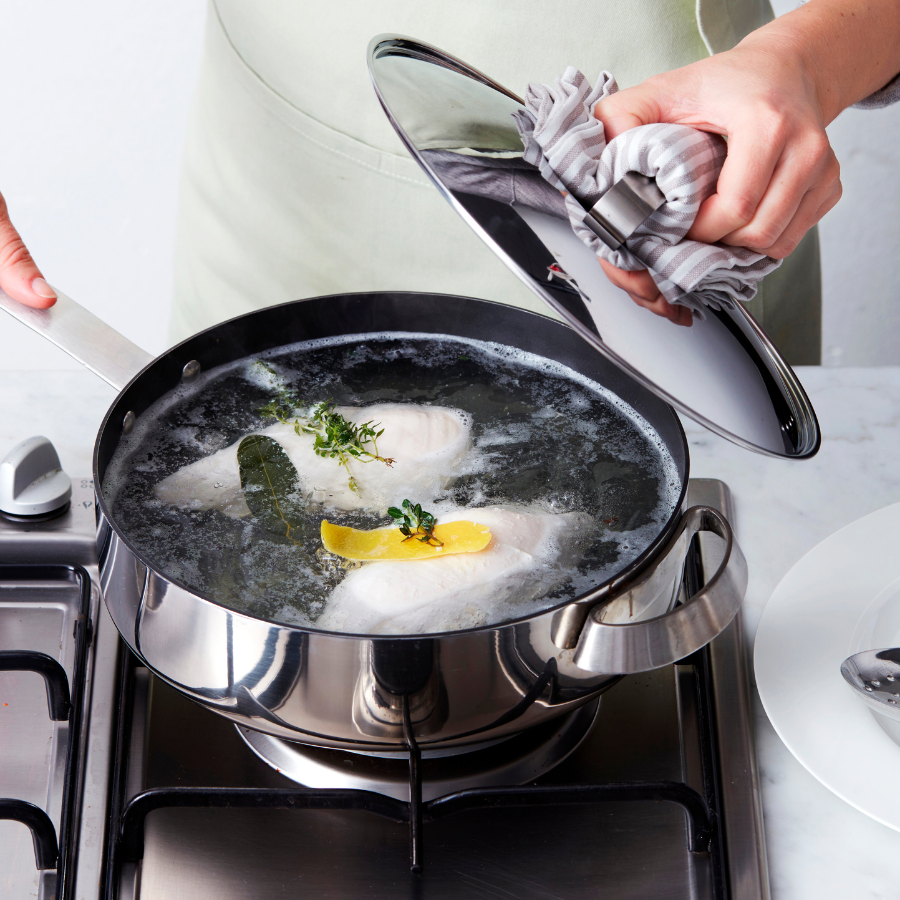
3. Using tongs or a slotted spoon, transfer chicken to a plate. Set aside to rest slightly before shredding or slicing. Alternatively, cool and store in the fridge for up to 3 days.
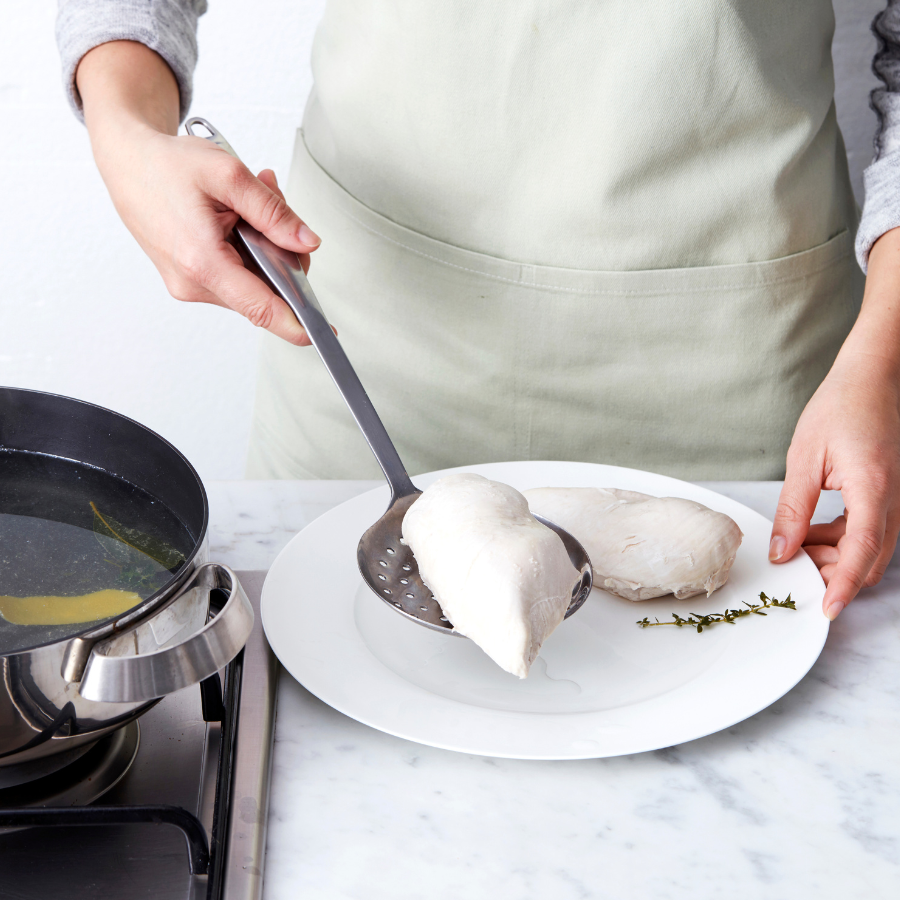
Tip: Bring the water to a simmer. Adding the chicken before bringing the liquid to a simmer makes it easier to control the temperature. Adding it after can cause the temperature of the liquid to drop so you will have to fiddle with the heat to get it simmering again.
Poaching chicken based on weight
After the water is simmering follow this guide
- 125g chicken breast fillets: poach 5 minutes. Turn off heat and set aside, covered, for 5 minutes. Should feel firm when pressed with tongs.
- 300g chicken breast fillets: poach 10 minutes. Turn off heat and set aside, covered, for 10 minutes. Should feel firm when pressed with tongs.
- 1.5kg whole chicken: poach 45 minutes. Bring to the boil then turn off heat and set aside, covered, for 45 minutes. To check if it is cooked, insert a skewer in the thickest part – there should be no pink juices.
Tips for poaching like a pro
- Ensure anything you are poaching is completely covered with liquid otherwise it won’t cook evenly. Chicken can be turned halfway through cooking.
- Poaching is great for cooking delicate foods, such as fish and seafood, as the gentle simmer ensures the food does not jostle around in the pan and you don’t need to turn it (so it is less likely to break up). Even so, choose a firm-fleshed fish such as snapper, salmon or ling.
- Another method of poaching is to bring the liquid to a simmer then turn off the heat. Set the pan aside, covered, and the food will cook in the residual heat (but cooking will take longer).
- Don’t attempt to poach frozen food as the outside will dry out before the inside is cooked.
- You can also poach chicken in stock, coconut milk, milk and wine.
How to poach fish and eggs
When poaching fish or eggs, add an acid like lemon juice, wine, or vinegar. This helps the protein hold together and enhances the flavour.
- 2cm thick fish fillets. Poach for 5–6 minutes. Remove from liquid immediately. Fish should be opaque and flake slightly when tested with a fork.
- Large prawns (in shells). Poach for 3–4 minutes. Remove from liquid immediately. Prawns should be pink and firm when cooked. If serving cold, plunge into iced water to stop the cooking process.
- Eggs. Crack egg into a cup and add to pan once water is simmering. Poach for 2–3 minutes.

